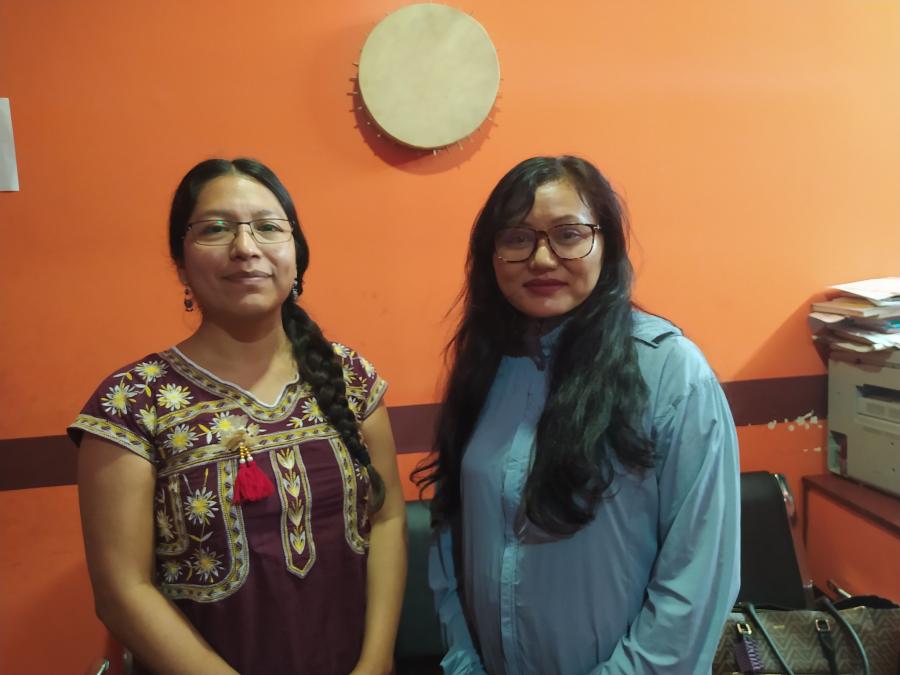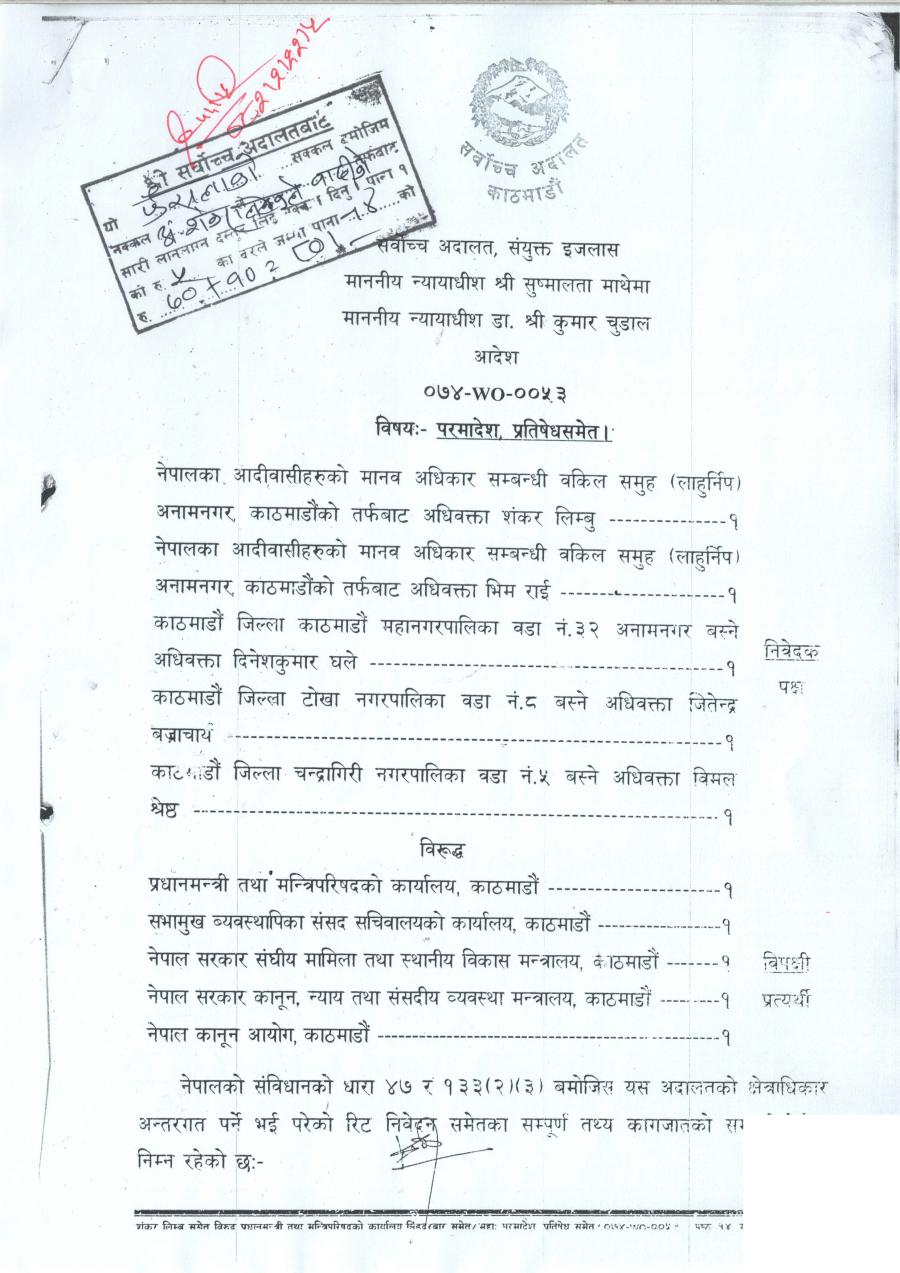By Dev Kumar Sunuwar
On August 9, 2019, Indigenous Peoples observed the International Day of the World’s Indigenous Peoples with gusto and fanfare around the globe. Meanwhile in Nepal, putting a halt to a 24-year-long practice of ceremonial traditions of celebrating the day, Indigenous people this year observed in the streets as part of their ongoing protest against the government’s move to slash civil service reservation quotas legally preserved for marginalized communities.
The UN General Assembly in 1993 proclaimed August 9 as the International Day of the World’s Indigenous Peoples to mark the first meeting of the UN Working Group on Indigenous Populations of the Sub-commission on the Promotion and Protection of Human Rights. Since then, Nepalese Indigenous Peoples, in leadership of Nepal Federation of Indigenous Nationalities (NEFIN) had been observing the day by organizing joyful week-long programs. However, NEFIN, an umbrella organization of Indigenous Peoples organizations in Nepal, decided to organize a series of massive movements across the country to press the government to comply with the reservation quota as put forth in Civil Service Act, 2007. The Act ensured that 45 percent of open competition seats in the public sector would be reserved for marginalized groups. Of the 45 percent seats, 33 percent would be reserved for women, 27 percent for Indigenous Peoples, 22 percent for Madhesis, 9 percent for Dalits, 5 percent for people living with disabilities and 4 percent for candidates from neglected regions. This principle of inclusion of marginalized communities has further been enshrined in Article 42 of the Constitution of Nepal 2015, under the title ‘Right to Social Justice.’
Article 42 (1) of the Constitution of Nepal (2015) says, “the socially backward women, Dalit, Indigenous Peoples, Madhesi, Tharu, Minorities, persons with disabilities, and other marginalized communities, Muslims, backward classes, gender and sexual minorities, youth, farmers, laborers, oppressed or citizens of backward regions and indigent Khas Arya shall have the right to participate in the state bodies on the basis of the inclusive principle.”
Despite the 45 percent reservation quota, the Public Service Commission (PSC) which recruits civil servants, in its notice issued on May 29, 2019, called for 9,161 vacancies for 515 local bodies, scrapping the reservation quotas for marginalized communities. Indigenous people, including members of other marginalized groups, have taken to the streets since PSC issued the vacancy notice. Protesting the government’s decision to sabotage the reservation policy across the country, NEFIN on the occasion of the World’s Indigenous Peoples’ Day decided to take a stand.

According to the Civil Service Act and the Constitution, as many as 4122 seats of the 9161 vacancies announced by PSC should have been reserved. “We [Nepalese Indigenous Peoples] have been fighting for our rights for so long. Our struggle is not over yet. Recently, the government snatched away our constitutionally guaranteed rights, including the right to inclusion in state bodies, thus, unlike previous years, we have decided to observe the day with a massive movement across the country to fight for our rights,” said Gobinda Chhantyal, vice-chairperson of NEFIN. Demanding proportionate representation in state bodies, on August 5 - 13, lead by NEFIN, Indigenous Peoples organized a series of mass movement including mass demonstrations, a back-walk rally, and circling of the various government ministries.
Nepalese Indigenous Peoples make up 35.8 percent of the total 26 million population, but historically their representation in the state bodies has been dismal. The government of Nepal introduced affirmative actions, called ‘principles of positive discrimination’ by making laws and amendments in the constitution to foster greater equality by giving a preferential treatment to certain groups including marginalized communities, Indigenous Peoples, women, and people with disabilities. The government took such steps to address structural discrimination and centuries of historical injustice, by reserving 45 percent of civil service seats for marginalized communities as a starting point. However, the government of Nepal has repeatedly infringed on the rights of marginalized communities, forcing them to take to the street. The recent call for vacancy without reservation is a case in point. To make marginalized communities feel that they are also part of the nation state and to end discrimination and social injustice, the government needs to secure proportionate representation in all state apparatus.


